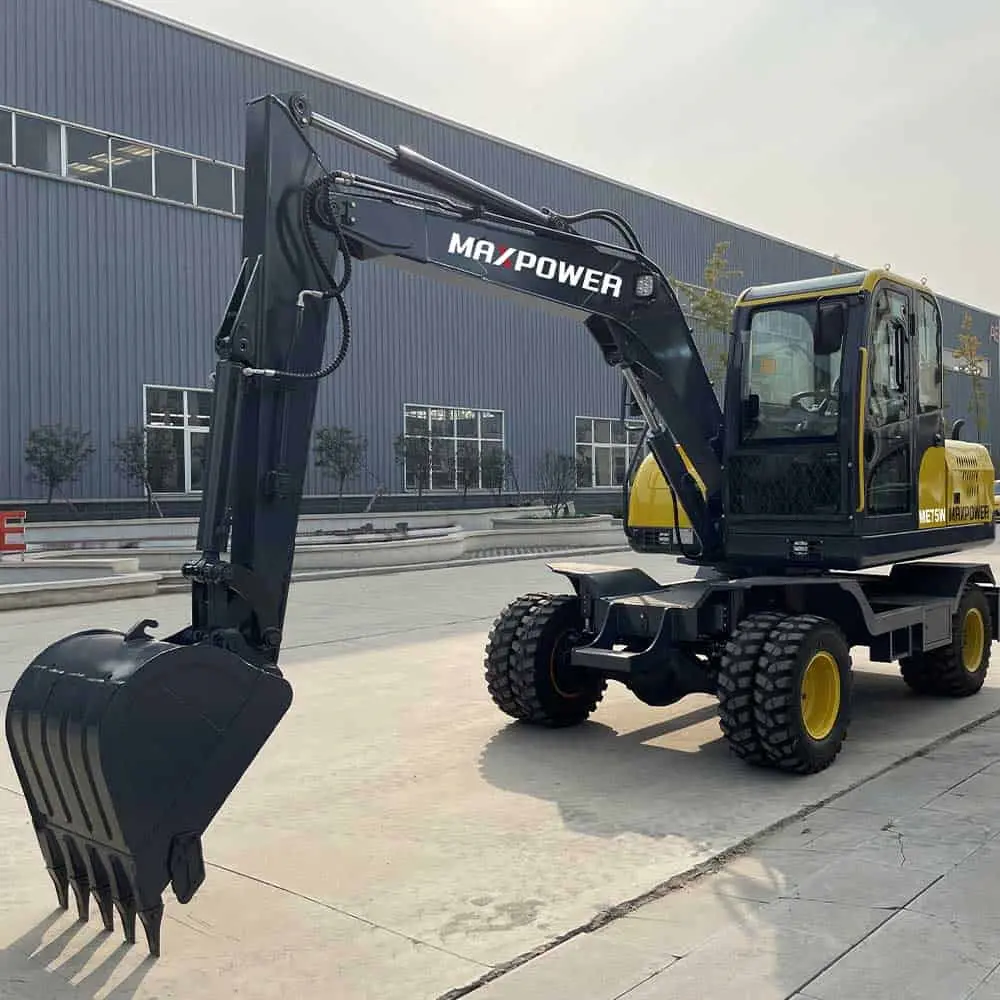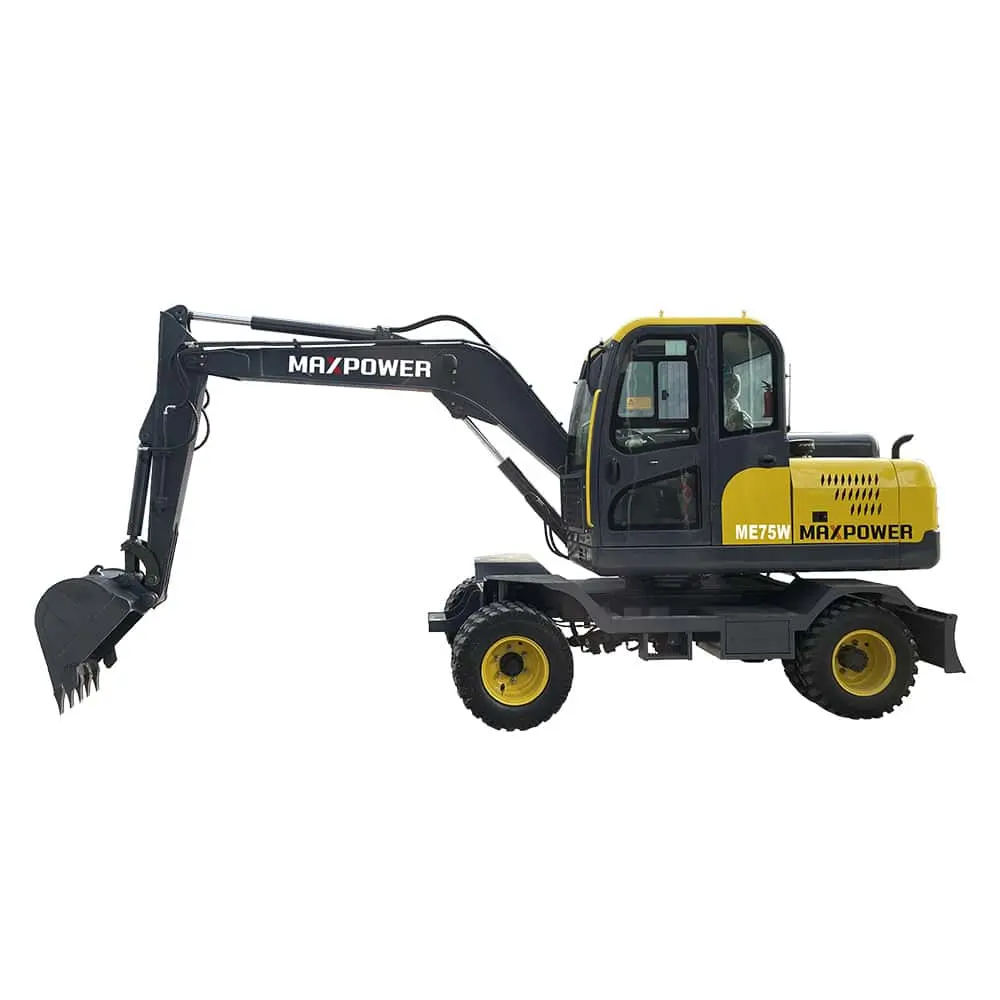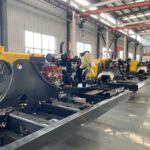Introduction
Urban construction has always been a complex and challenging field, where the need for precision, efficiency, and adaptability is paramount. With the rapid evolution of technology, traditional methods are being replaced by more sophisticated and versatile solutions. One such innovation that is gaining traction is the use of wheeled excavators. In this blog post, we will explore the role of wheeled excavators in shaping the future of urban construction, their advantages over traditional alternatives, and how they are set to revolutionize the industry.
The Evolution of Construction Machinery

The history of construction machinery is a testament to human ingenuity and the relentless pursuit of progress. From the manual labor of ancient civilizations to the steam-powered machines of the Industrial Revolution, each era has brought forth new tools designed to make construction faster and more efficient. In recent years, the focus has shifted towards sustainability and the minimization of environmental impact, leading to the development of wheeled excavators.
The Emergence of Wheeled Excavators
Wheeled excavators, with their mobility and compact design, are the new workhorses of urban construction sites. They offer a unique blend of portability and functionality, making them ideal for navigating tight spaces and performing a variety of tasks with precision.Their versatility and efficiency make them a valuable asset for any construction project in the city. Whether it’s digging trenches, lifting heavy materials, or clearing debris, wheeled excavators get the job done with ease. With their ability to move quickly from one location to another, they help streamline operations and maximize productivity on busy urban job sites.
Key Features and Benefits
- Mobility: The ability to move quickly between job sites without the need for heavy transport.
- Versatility: Equipped with a range of attachments, wheeled excavators can perform tasks from digging to lifting.
- Fuel Efficiency: Compared to their tracked counterparts, wheeled excavators consume less fuel, contributing to lower operating costs.
- Ease of Maintenance: With fewer components exposed to wear, maintenance is simplified and less frequent.
Case Studies: Success Stories
We will delve into real-world examples where wheeled excavators have been instrumental in completing complex urban construction projects. These case studies will highlight the practical applications and tangible benefits of using wheeled excavators in various scenarios.
The Future Outlook
As cities continue to grow and urbanization accelerates, the demand for efficient construction solutions will only increase. Wheeled excavators are poised to play a pivotal role in meeting these demands, offering a sustainable and effective alternative to traditional construction methods.
The Wheeled Excavator in Action: A Closer Look
Mobility and Maneuverability
Wheeled excavators are designed to provide superior mobility on paved roads and within urban environments. Their compact size allows for easy navigation through narrow streets and congested areas, making them an ideal choice for urban construction projects.
Versatility in Urban Settings
The versatility of wheeled excavators is unmatched. With a wide range of attachments available, these machines can perform a multitude of tasks, from digging and grading to lifting and material handling. This adaptability is crucial for urban construction, where projects often require a variety of tasks to be completed in a limited space.
Environmental Considerations
In an era where environmental impact is a key concern, wheeled excavators offer a more sustainable option. Their lower fuel consumption and reduced emissions contribute to a smaller carbon footprint, aligning with the goals of green construction.
Safety and Precision
Safety is paramount in construction, and wheeled excavators are equipped with advanced safety features and precision controls. These features ensure that operations can be carried out safely and accurately, even in the most challenging urban environments.
Cost-Effectiveness
The cost savings associated with wheeled excavators are significant. Their lower fuel consumption, reduced maintenance requirements, and ability to perform multiple tasks without the need for additional machinery make them a cost-effective choice for urban construction projects.
Table: Comparison of Wheeled vs. Tracked Excavators in Urban Construction

| Feature | Wheeled Excavator | Tracked Excavator |
|---|---|---|
| Mobility | High – suitable for urban environments | Low – not ideal for paved roads |
| Versatility | High – wide range of attachments | Moderate – fewer attachment options |
| Fuel Efficiency | High – consumes less fuel | Low – higher fuel consumption |
| Environmental Impact | Low – lower emissions | High – higher emissions |
| Maintenance | Low – less exposed components | High – more components prone to wear |
| Safety and Precision | High – advanced controls | Moderate – depends on model |
| Cost-Effectiveness | High – lower operating costs | Low – higher operating costs |
Conclusion
As we look to the future of urban construction, it is clear that wheeled excavators will play an increasingly important role. Their unique combination of mobility, versatility, and environmental sustainability positions them as a key player in the evolution of construction machinery. As cities continue to grow and the need for efficient, sustainable construction solutions becomes more pressing, wheeled excavators are set to become the standard in the industry.
The integration of wheeled excavators into urban construction practices is not just a trend but a step towards a more efficient and environmentally friendly approach to building the cities of tomorrow. As technology continues to advance, we can expect to see even more innovative solutions emerging, further enhancing the capabilities of wheeled excavators and their impact on urban construction.
FAQ
What is a wheeled excavator?
A wheeled excavator is a construction machine that features a digging bucket and is mounted on wheels, allowing for greater mobility and ease of transport compared to traditional tracked excavators.
How do wheeled excavators differ from tracked excavators?
Wheeled excavators are more mobile and can be driven on paved roads without causing damage, making them ideal for urban environments. They are also generally more fuel-efficient and easier to maintain.
What are the benefits of using wheeled excavators in urban construction?
The benefits include improved mobility, versatility in performing various tasks, better fuel efficiency, reduced environmental impact, enhanced safety features, and overall cost-effectiveness.
Are there any limitations to using wheeled excavators?
While wheeled excavators are excellent for urban construction, they may not be suitable for heavy-duty tasks or in rough terrain where tracked excavators would be more appropriate.
How do wheeled excavators contribute to green construction initiatives?
They contribute by reducing fuel consumption and emissions, thus lowering the carbon footprint of construction projects.






-150x150.webp)
